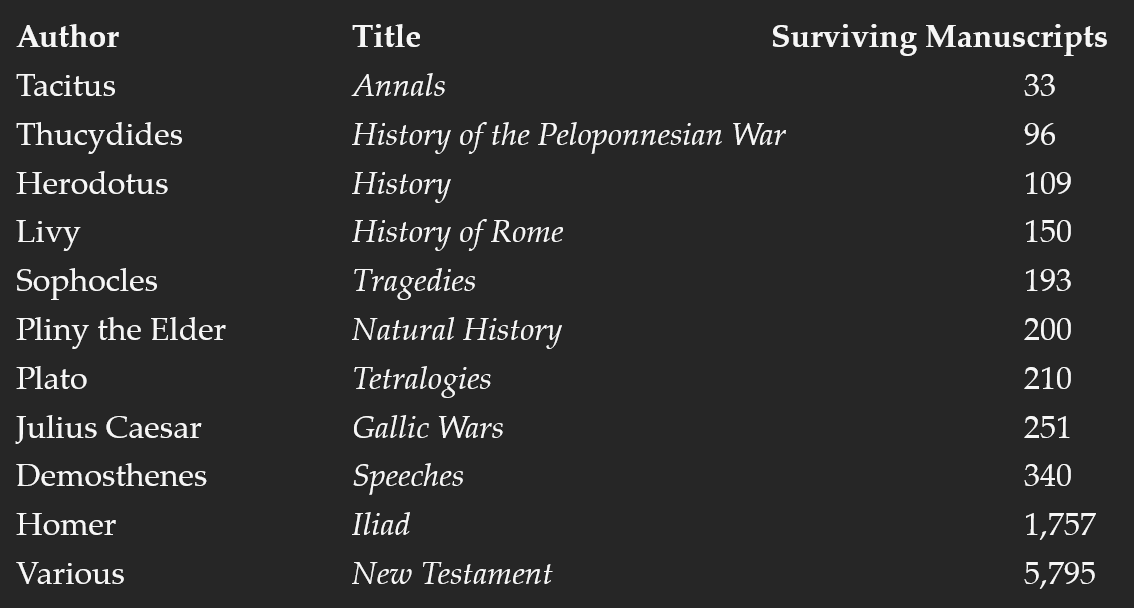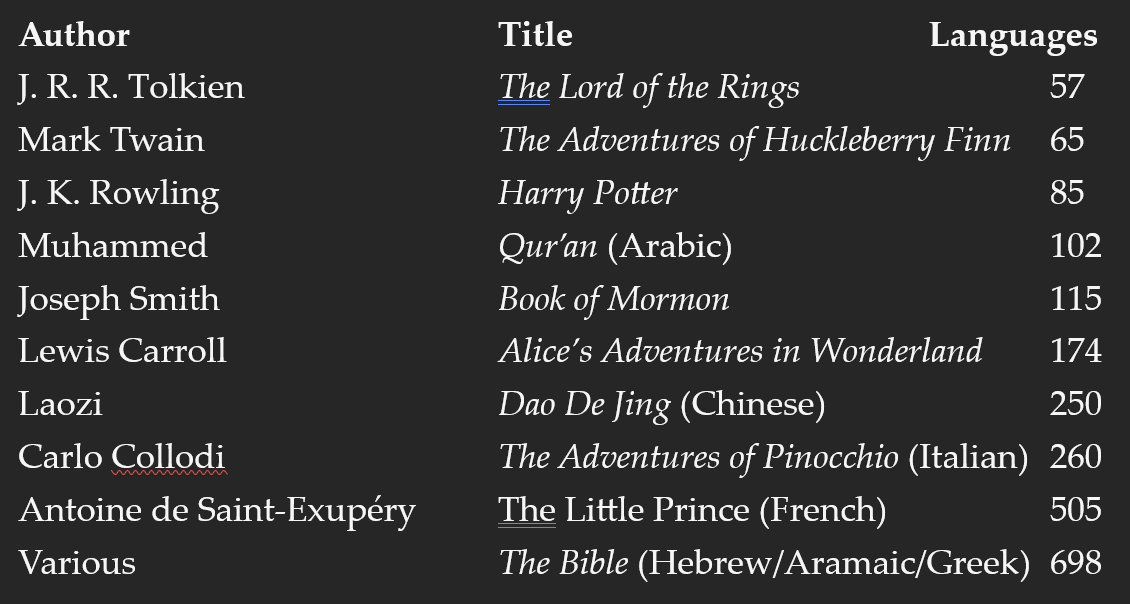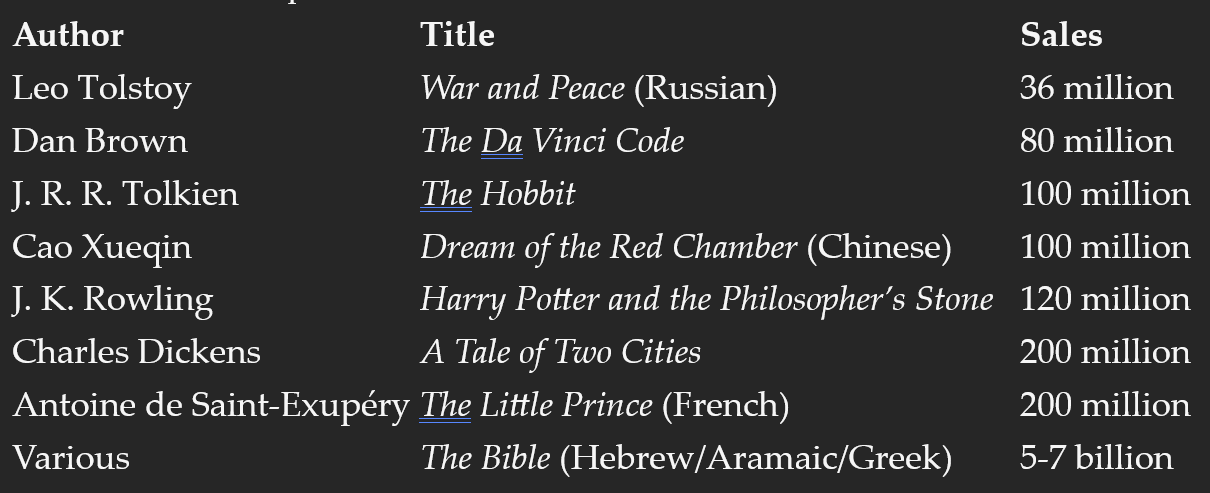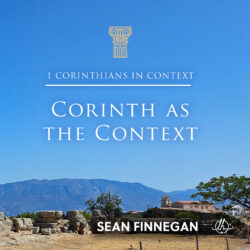This is part 1 of the Read the Bible For Yourself.
Today we are beginning a new class called Read the Bible for Yourself. Whether you are new to scripture, or you’ve been reading it for years, this class will empower you to read and understand the bible like never before. You’ll gain key insights into the context, content, and application of scripture so you can take your reading and understanding to the next level.
Today I want to begin with the question, “Why should you read the bible for yourself?” Why is this book even worth your time? For those of you who have been reading it for years, you get it, but how would you inspire a desire in someone else to go through the hard work of learning to read the bible proficiently? In this episode you’ll see why everyone, even non-Christians, should put in the effort to read the good book.
Listen to this episode on Spotify or Apple Podcasts
—— Links ——
- See other episodes in Read the Bible For Yourself
- Check out the class How We Got the Bible
- Other classes are available here
- Check out Sean’s book, Kingdom Journey
- Get the transcript of this episode
- Support Restitutio by donating here
- Join our Restitutio Facebook Group and follow Sean Finnegan on Twitter @RestitutioSF
- Leave a voice message via SpeakPipe with questions or comments and we may play them out on the air
- Intro music: Good Vibes by MBB Attribution-ShareAlike 3.0 Unported (CC BY-SA 3.0) Free Download / Stream: Music promoted by Audio Library.
- Who is Sean Finnegan? Read his bio here
Notes
The Bible survives in more manuscripts than other ancient documents.[1]
The Bible is available in more languages than other books.[2]
The Bible sells more copies than other books.[3]
Which two sayings are in the Bible?
- Cleanliness is next to godliness
- Am I my brother’s keeper?
- God helps those who help themselves
- This too shall pass
- A living dog is better than a dead lion
- God works in mysterious ways
- Moderation in all things
God inspired the Bible, resulting in an authoritative book for belief and practice.
2 Timothy 3.14–17 (NRSVue[4])
14 continue in what you have learned and firmly believed, knowing from whom you learned it 15 and how from childhood you have known sacred writings that are able to instruct you for salvation through faith in Christ Jesus. 16 All scripture is inspired by God and is useful for teaching, for reproof, for correction, and for training in righteousness, 17 so that the person of God may be proficient, equipped for every good work.
Review:
- The Bible is a fascinating book because it has way more surviving manuscripts, it is available in way more languages, and it has sold way more copies than other books.
- The content of scripture alone should make you want to read it since it teaches about God, life, morals, and eternal life.
- This class will help you develop the ability to discern between the genuine and the counterfeit.
- God inspired scripture, making its contents useful for training and authoritative.
- Even recognizing the authority of scripture and studying it assiduously does not guarantee correct interpretation.
Footnotes:
[1] If we added in manuscripts of the Old Testament the number would jump up considerably, especially after the discovery of the Dead Sea Scrolls and the documents recovered from the Cairo genizah.
[2] If we limit ourselves to only the New Testament, the number of language jumps to 2,191.
[3] See Guiness Book of World Records, “Best-Selling Book,” accessed Nov 10, 2023, https://www.guinnessworldrecords.com/world-records/best-selling-book-of-non-fiction.
[4] New Revised Standard Version Updated Edition, National Council of Churches, 2021.










This comment box is giving me trouble…
12 years ago I would have said yes… but now, no. I hate to say it, but without other people and their knowledge, their experience, their story and how they’ve changed in reading the Bible I would say reading it alone will likely lead you down many incorrect roads. I know it’s a double-edged sword, but we bring our own definitions and worldviews to the Bible that are deep within before reading it. Words like “hell,” “God,” “Jesus,” are just a few that will have so much baggage built into them possibly based on your past well before you read the Bible. I can only speak for myself, “hell” led me to have no other concern except for people dying and not knowing Christ. It drove me to ignore people and only think of their salvation.
My friend, we tried that strategy for over a thousand years. Wasn’t much of a great success if you ask me.
As for the series, I guess I may not exactly be the target audience; generally a bit elementary information. Nevertheless, I’ll be listening because it’s still enjoyable. 🙂
I’ve also got a tip regarding YouVersion and how you mentioned some other apps have the Hebrew/Greek as well. Actually, you can setup YouVersion to offer those languages as well.
Open the app and select your translation, then for Greek, search for SBL Greek New Testament (or TR1624/TR1894 for the Received Text). For Hebrew, search for Westminster Leningrad Codex.
Additionally, if you’re just reading English, you can select any verse and choose the Compare option. Here you can also add the aforementioned translations to quickly view the source language for any single verse you want to quickly look up.
Works great for me!
God bless, Mark
The Hebrew name of the Messiah, Yahshua, and what his name means is more evidence in support of the Unitarian position that God is not Jesus. The Hebrew name Yahshua means “Yah is salvation”. The name Jesus derived from the Greek doesn’t mean this. This has been lost in translation.
We see a similar truth with the name of the prophet Jeremiah/Yirmeyahu. God’s name is Yahweh, but He is also referred to as Yah many times in the scriptures. Many of the prophets had this shortened name Yah as part of their names. As such, YirmeYAHu was deeply humbled to have His name contained within his own name:
“Your words were found, and I ate them, and your words became a joy to me and the rejoicing of my heart, for I am called by your name, O Yahweh, God of Armies.” Yirmeyahu 15:16 REV Bible.
The prophet Yirmeyahu also foretold that the Messiah’s name would be forgotten some day:
“But I was like a gentle lamb led to the slaughter, and I did not know that they had schemed schemes against me, saying, “Let’s destroy the tree with its fruit, and let’s cut him off from the land of the living so that his name will no longer be remembered.” Yirmeyahu 11:19 (the word “tree” here is referring to the Messiah as well as how he would be crucified, on a literal tree)
Another important truth about names in the Bible is that Yahshua received a new name (Rev 3:12). This will also be the case for believers someday (Rev 2:17). However in the case of Yahweh, scripture tells us that this is His name forever:
“Furthermore, God said to Moses, “Tell the children of Israel this: ‘Yahweh, the God of your fathers, the God of Abraham, the God of Isaac, and the God of Jacob, has sent me to you.’ This is my name forever, and this is how I am to be remembered throughout all generations.” Exodus 3:15
So you see, names are important in the scriptures, and this evidence supports the Unitarian position and should be used in their arguments against the Roman Catholic trinity.